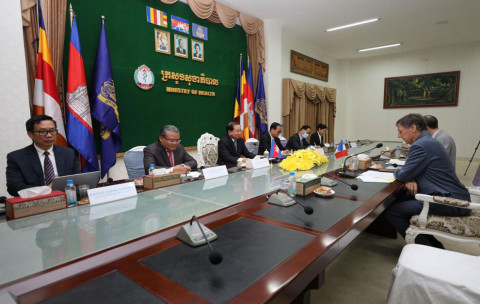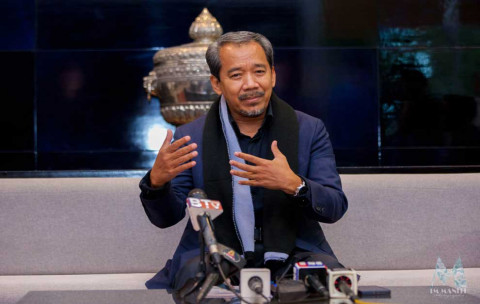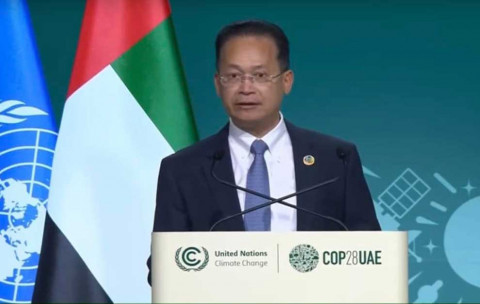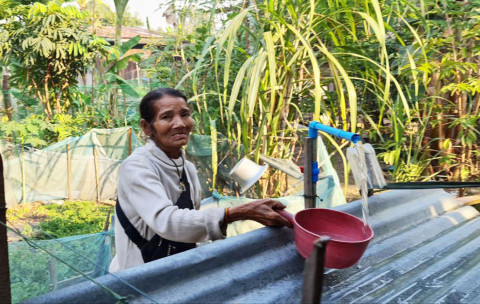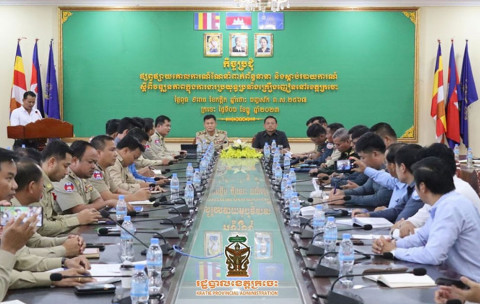
Garment workers at a textile factory in Kampong Speu province’s Chbar Mon town in November. Kampong Speu administration
Despite global economic uncertainty, the Council for the Development of Cambodia (CDC) approved over 20 private investment projects in November, with a capital exceeding $600 million. Over 80% of the investments are from local sources, as confirmed by the CDC.
In November 2023, the council gave the green light to 21 new investment projects, cumulatively worth nearly $619 million and expected to create approximately 22,000 jobs. Cambodian financiers constituted 82.9% of the capital outlay, while Chinese investors account for over 17%, as per a CDC statement released over the weekend.
The council highlighted significant investment projects approved in November, including two hydropower projects in Koh Kong province with a combined capacity of 170 megawatts (MW), a 60MW solar power plant in Svay Rieng province and a project for establishing a footwear factory in Phnom Penh.
Hong Vanak, an economics researcher at the Royal Academy of Cambodia, stated on December 10 that the consistent growth can be attributed to various factors, including the country’s favourable geographical location, investment laws and access to international markets under special tax conditions.
He also noted the country’s abundant and skilled labour force and rich transport infrastructure.
Vanak anticipates further increases in factories and enterprises as global economic and political conditions improve.
“Gradually, Cambodia is evolving into a supply source for various international markets, whereas previously, it depended on imports for domestic needs,” he stated.
He added that the surge in direct investment not only boosts employment and state revenue but also enhances the country’s reputation and aids the government’s ambition to attain upper middle-income status by 2030 and high-income status by 2050.
The economist urged the government and private sector to attract large-scale and technologically advanced companies.
Lim Heng, vice-president of the Cambodia Chamber of Commerce (CCC), noted that to attract more foreign investors, the group has established representative offices in countries like Canada, Japan and Australia.
He said these offices provide information on Cambodian law and investment potential and assist in finding markets for the country’s exports.
“Political stability, robust economic growth, an affordable, abundant and skilled labour force and favourable investment laws have made Cambodia more attractive to both local and foreign investors,” he stated.
Suon Sophal, deputy secretary general of the CDC’s Cambodian Investment Board (CIB), encouraged thorough feasibility studies and collaboration with stakeholders to support investments in the green energy sector at a December 6 meeting with potential investors at CDC headquarters.
He highlighted that the sector is a priority under the government’s Pentagonal Strategy - Phase I and said that the country’s new investment law offers incentives in line with relevant rules and guidelines.
“I am confident that the delegation will explore the dynamic market opportunities and collaborate with relevant ministries and institutions to secure investment permits in this innovative field,” he added.



















